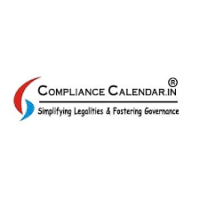Top Strategies for Success as a SEBI Registered Research Analyst in India

Strong 8k brings an ultra-HD IPTV experience to your living room and your pocket.
In the dynamic world of India's financial markets, the role of a SEBI Registered Research Analyst is pivotal. These professionals provide investors with insights and recommendations, aiding informed decision-making. Achieving success in this field requires a blend of knowledge, ethical practices, and strategic approaches. Below are key strategies to excel as a SEBI Registered Research Analyst in India.
1. Attain and Maintain SEBI Registration
Securing registration with the Securities and Exchange Board of India (SEBI) is the foundational step. This not only legitimizes your practice but also enhances credibility among clients. The process involves meeting specific educational qualifications, obtaining necessary certifications, and fulfilling financial requirements. Detailed information on this process can be found on the SEBI official website.
2. Develop a Robust Ethical Framework
Adherence to a strict code of ethics is non-negotiable. This includes maintaining transparency, avoiding conflicts of interest, and ensuring unbiased recommendations. Clients place immense trust in research analysts; upholding ethical standards fosters long-term relationships and safeguards your reputation.
3. Engage in Continuous Professional Development
The financial markets are ever-evolving. Staying abreast of the latest trends, regulations, and analytical tools is crucial. Regular participation in workshops, seminars, and certification programs enhances your skill set and ensures your analyses remain relevant. For instance, the National Institute of Securities Markets (NISM) offers various programs tailored for financial professionals.
A deep understanding of both technical and fundamental analysis is essential. Technical analysis involves studying price movements and chart patterns to forecast future market behavior, while fundamental analysis assesses a company's financial health and market position. Proficiency in both methods allows for comprehensive evaluations and well-rounded recommendations.
5. Cultivate Effective Communication Skills
Translating complex data into understandable insights is a valuable skill. Whether through written reports or verbal presentations, clear communication ensures clients grasp your analyses and the rationale behind your recommendations. This fosters trust and facilitates informed decision-making.1
6. Implement Rigorous Risk Management Practices
Identifying and mitigating potential risks is a cornerstone of a research analyst's responsibilities. Developing strategies that align with clients' risk tolerance levels and advising on portfolio diversification can significantly reduce potential losses. Emphasizing risk management not only protects clients' investments but also reinforces your role as a trusted advisor.
7. Leverage Technology and Analytical Tools
Incorporating advanced analytical tools and software enhances the accuracy and efficiency of your research. Utilizing platforms that offer real-time data, predictive analytics, and automated reporting can streamline your workflow and provide clients with timely insights. Staying technologically adept ensures you remain competitive in a data-driven industry.
8. Build a Strong Professional Network
Networking with industry peers, attending financial forums, and engaging in professional associations can open avenues for collaboration and knowledge sharing. A robust professional network provides support, fosters learning, and can lead to new opportunities.
9. Focus on Client Education
Empowering clients with knowledge about market mechanisms, investment strategies, and potential risks enhances their confidence and engagement. Conducting workshops, webinars, or providing educational materials demonstrates your commitment to their financial well-being and positions you as a thought leader.
10. Maintain Comprehensive Documentation
Keeping detailed records of your research processes, client communications, and recommendations is vital. This practice not only ensures compliance with regulatory requirements but also serves as a valuable reference for future analyses and audits.
11. Seek Feedback and Adapt
Regularly soliciting feedback from clients and peers provides insights into areas of improvement. Being receptive to constructive criticism and adapting accordingly fosters personal growth and enhances the quality of your services.
12. Uphold Transparency in Operations
Being open about your research methodologies, potential conflicts of interest, and fee structures builds trust with clients. Transparency ensures clients are fully informed and can make decisions with confidence in your integrity.
13. Develop a Niche Expertise
Specializing in a particular sector or market segment can distinguish you from competitors. Developing niche expertise allows for deeper insights and positions you as a go-to analyst in that area, attracting clients seeking specialized knowledge.
14. Adhere to Compliance and Regulatory Standards
Strict adherence to SEBI regulations and staying updated on any changes is imperative. Compliance ensures the legality of your operations and protects you from potential legal issues. Regularly reviewing SEBI guidelines and consulting with legal experts can aid in maintaining compliance.
15. Exhibit Patience and Perseverance
Building a successful career as a research analyst requires time, dedication, and resilience. Market conditions can be unpredictable, and not all recommendations will yield the desired outcomes. Demonstrating patience and a commitment to continuous improvement is key to long-term success.
Frequently Asked Questions (FAQs)
Q1: What qualifications are necessary to become a SEBI Registered Research Analyst?
A: Candidates must possess a professional qualification or postgraduate degree/diploma in finance, business management, commerce, economics, or related fields. Alternatively, a graduate degree with at least five years of experience in financial advisory or related fields is acceptable. Additionally, passing the NISM Series XV: Research Analyst Certification Examination is mandatory.
Q2: How does SEBI registration benefit a research analyst?
A: SEBI registration enhances credibility, legally authorizes the provision of research services, and ensures adherence to regulations designed to protect investors from biased or misleading information.
Q3: What are the ongoing compliance requirements for SEBI Registered Research Analysts?
A: Analysts must engage in continuous professional education, submit annual compliance reports to SEBI, adhere to a prescribed code of conduct, disclose any conflicts of interest, and maintain proper records
Note: IndiBlogHub features both user-submitted and editorial content. We do not verify third-party contributions. Read our Disclaimer and Privacy Policyfor details.






